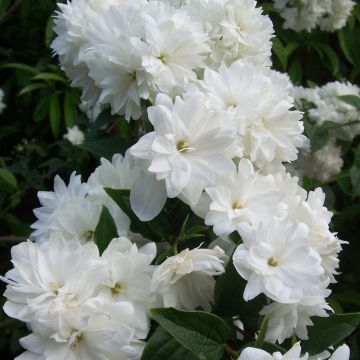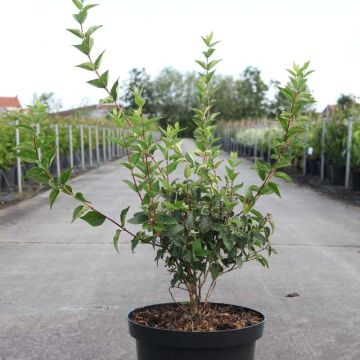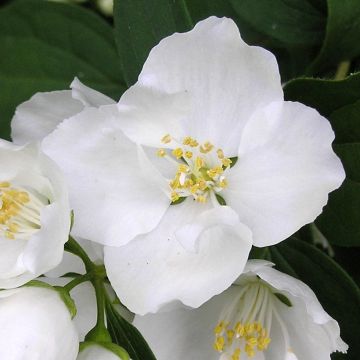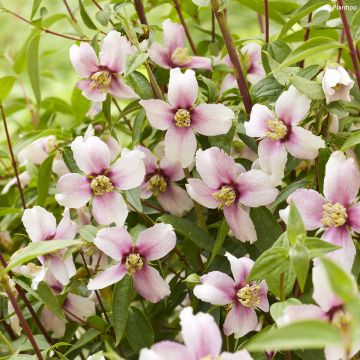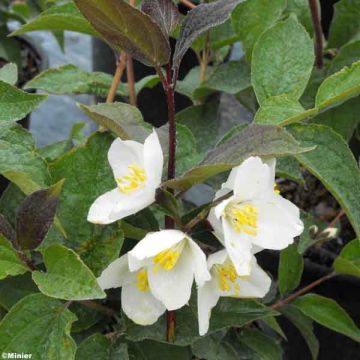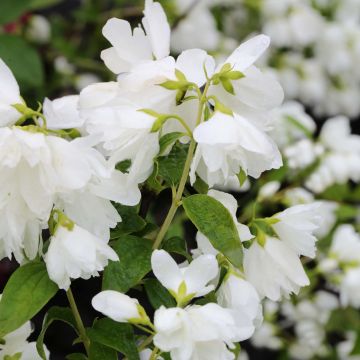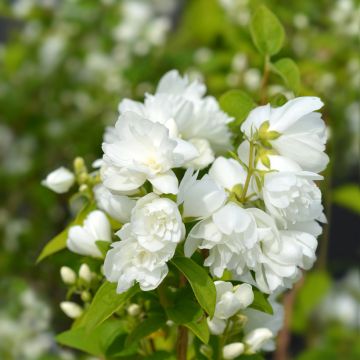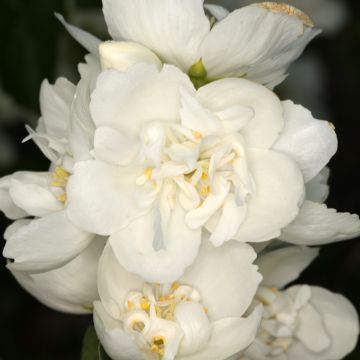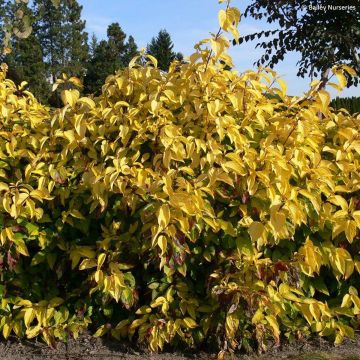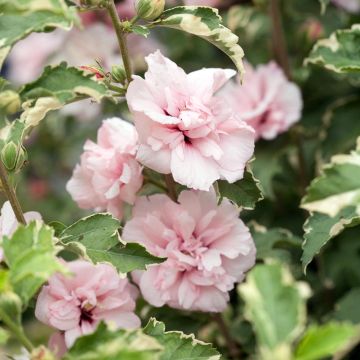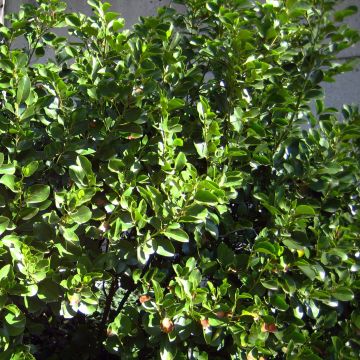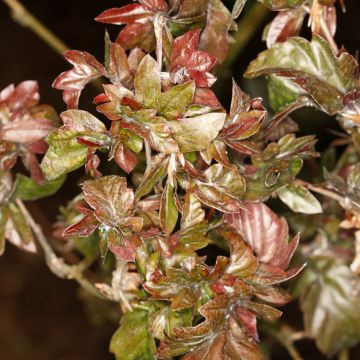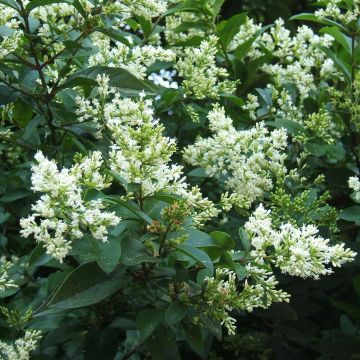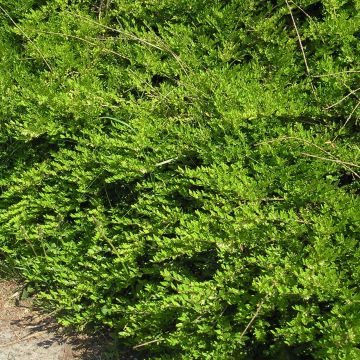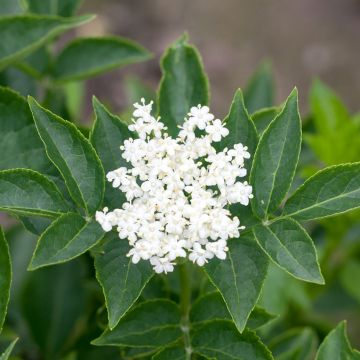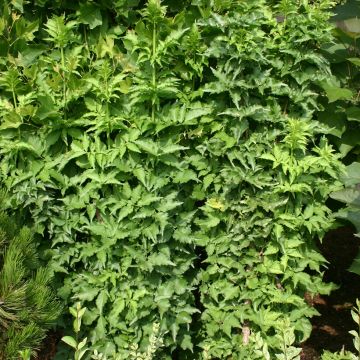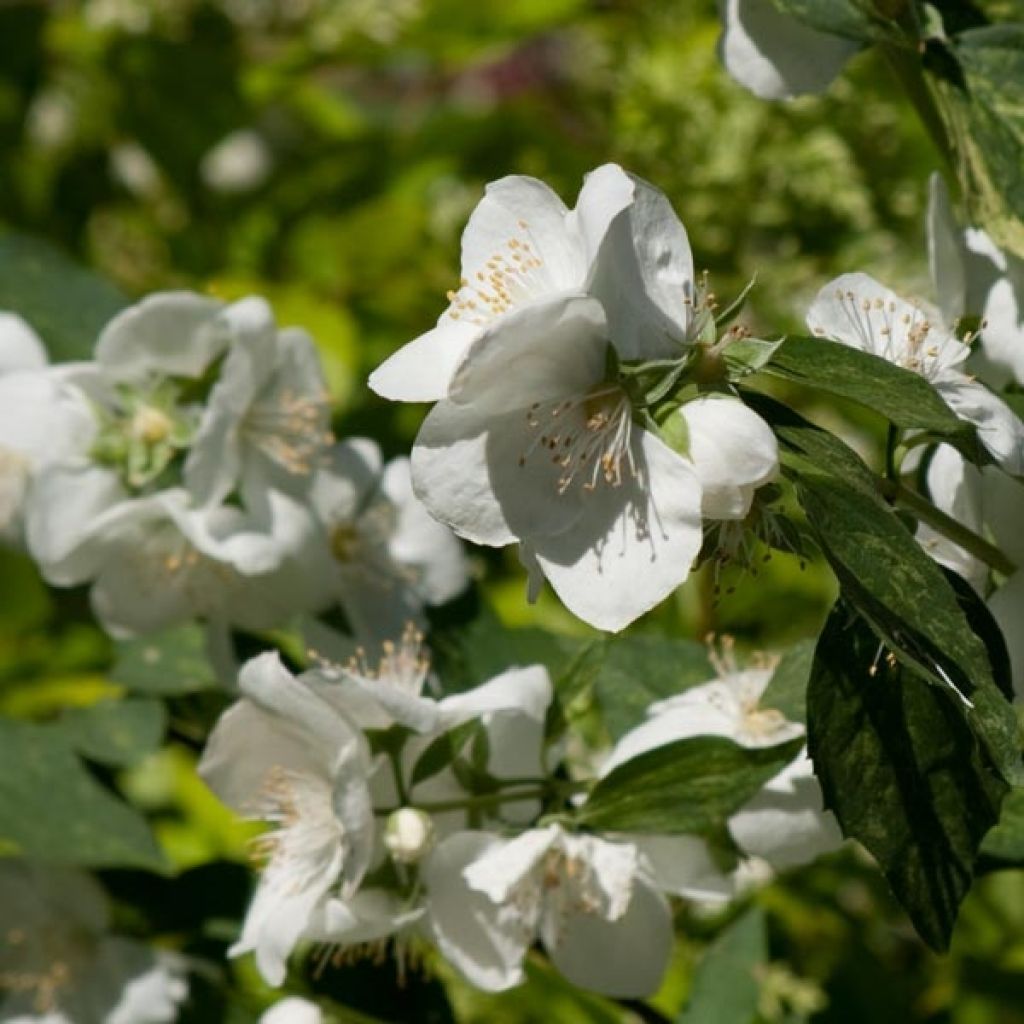

Philadelphus Innocence - Mock Orange
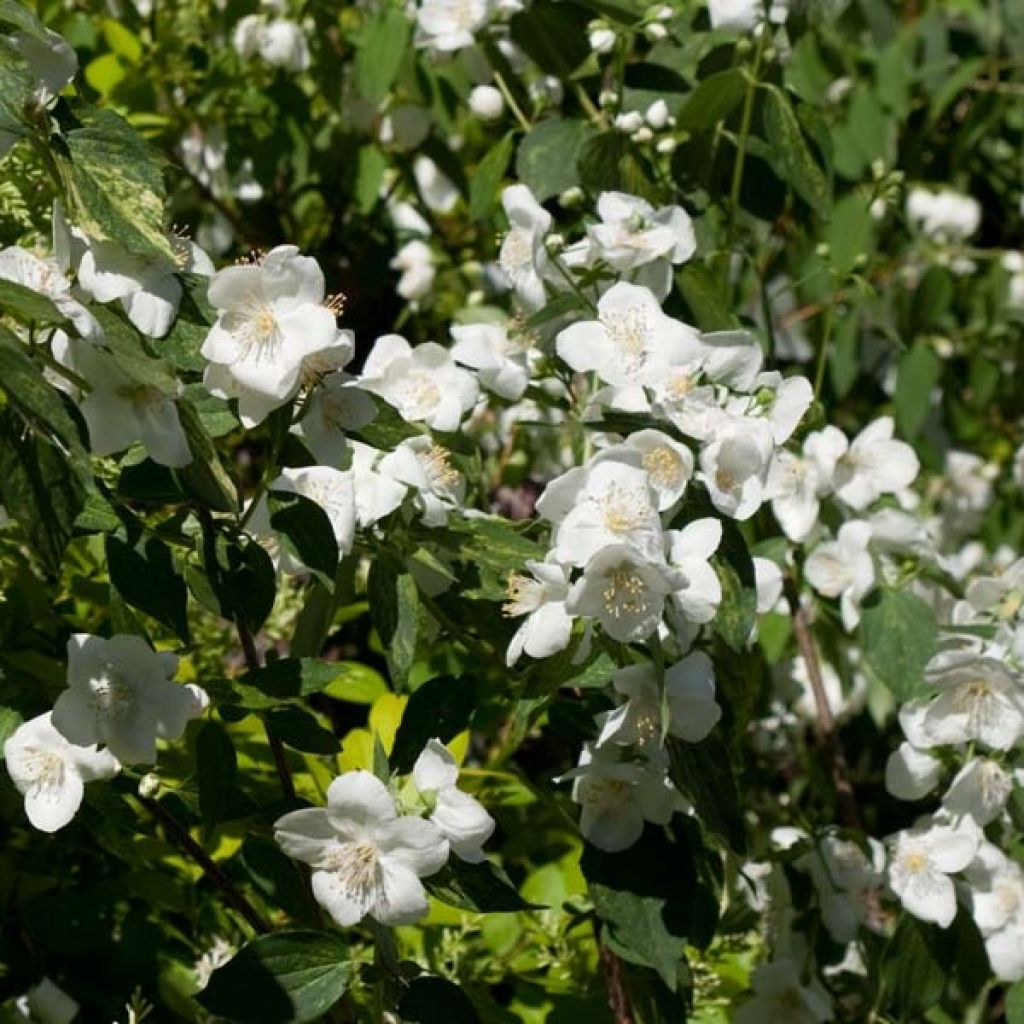

Philadelphus Innocence - Mock Orange
Philadelphus Innocence - Mock Orange
Philadelphus x lemoinei Innocence
Mock Orange
The plant arrived with several branches devoid of foliage, small and damaged leaves, but many buds, so a lot of hope.
Dominique, 06/05/2024
This item cannot be shipped to the selected country
Delivery charge from €5.90
Delivery charge from €5.90
More information
Schedule delivery date,
and select date in basket
This plant carries a 24 months recovery warranty
More information
We guarantee the quality of our plants for a full growing cycle, and will replace at our expense any plant that fails to recover under normal climatic and planting conditions.
From €5.90 for pickup delivery and €6.90 for home delivery
Express home delivery from €8.90.
From €5.90 for pickup delivery and €6.90 for home delivery
Express home delivery from €8.90.
Does this plant fit my garden?
Set up your Plantfit profile →
Description
Philadelphus 'Innocence' is a very old variety of garden mock orange, with an unforgettable fragrance. 'Innocence' charms in spring, with an abundance of simple and light white and fragrant flower clusters, but is also attractive outside of flowering, with its foliage randomly splashed with cream, yellow, and gold. A little slow to establish, this mock orange gradually forms a dense and sturdy bush, with a fluid and slightly arched habit. Its variegated foliage, which dislikes strong sun elegantly dresses the shaded or semi-shaded areas of the garden.
The Philadelphus Innocence is one of the many horticultural hybrids resulting from the cross-breeding of Philadelphus microphyllus (originating from the southeastern U.S.A) and P. coronarius (originating from southern Europe and Asia Minor), obtained in 1900 in France by Victor Lemoine. All these plants belong to the hydrangea family, just like hydrangeas. This shrub is actually a collection of solid, flexible, and curved stems, emerging directly from the ground, giving the plant a dense, compact, and slightly spreading habit. It takes a while to establish: the mock orange takes several years to be at its best. At maturity, this shrub will reach about 2.50m (8ft) in height, and approximately the same in width. The particularly generous flowering occurs in late spring or early summer, earlier or later depending on the climate. The white flowers, composed of 4 petals arranged in flat cups, measure about 3-4cm (1.2 - 1.6in) in diameter. They are gathered in slightly loose terminal clusters. Their intense fragrance is a blend of orange blossom with hints of wild strawberry. Its decorative, deciduous foliage consists of ovate, entire leaves with finely toothed edges, measuring 10cm (3.9in) in length, slightly furry on the underside. Almost cream-coloured in early spring, they later become variegated and punctuated with varying shades of yellow, and turn green in early autumn. The reddish-brown to orange bark flakes off as it ages. Garden mock oranges live for many years.
The mock orange is perfectly hardy and indifferent to the nature of the soil once well established, even if it is chalky and dry in summer. This shrub, sometimes considered ungraceful in winter, is indispensable in the garden. Hybridizers have seized it to create hybrids that all prove to be excellent garden plants, hardy, disease-free, and of great ornamental value. The variegated foliage of 'Innocence' mock orange prohibits it from being exposed to scorching sun, prefer semi-shade, where it will reveal all its splendour. Plant it in a mixed hedge, surrounded by deciduous or evergreen euonymus, lilacs, buddleias, abelias, or large bush roses, as it certainly has its place in the scented garden. Among perennials, one can choose light foliage and flowers, such as those of Geranium phaeum Album, with white lilies, Hosta undulata var albomarginata for example. White-flowered shrubs such as Hydrangea Annabelle, Hydrangea quercifolia Snowflake, and serviceberries will accompany it in a white garden or on the edge of woodland. Finally, one can also let a late-flowering clematis (Clematis flammula) climb in its branches.
Report an error about the product description
Philadelphus Innocence - Mock Orange in pictures
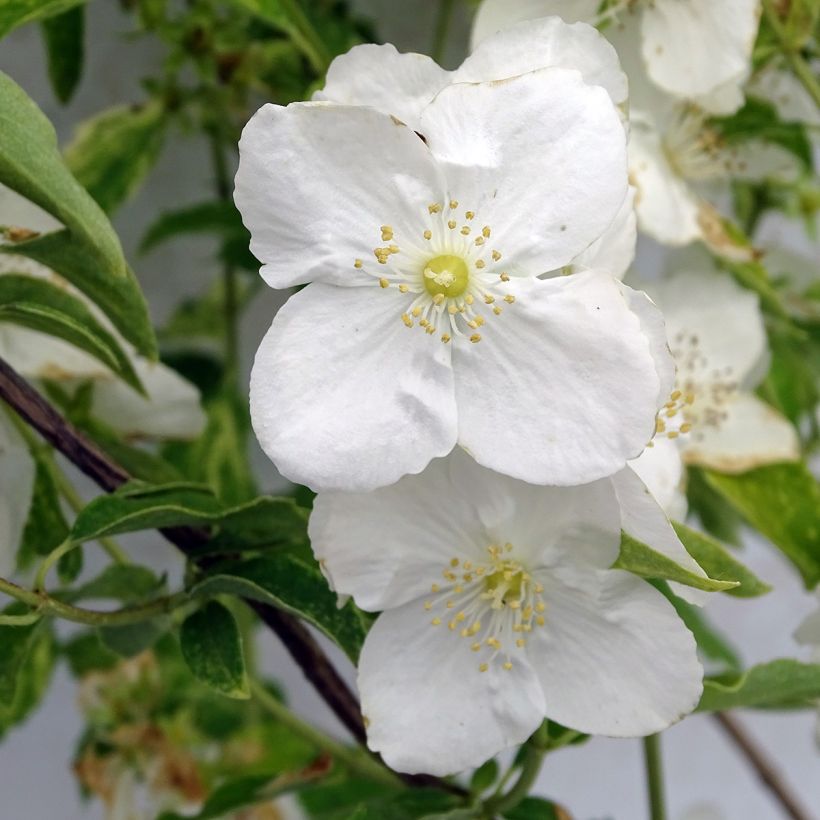

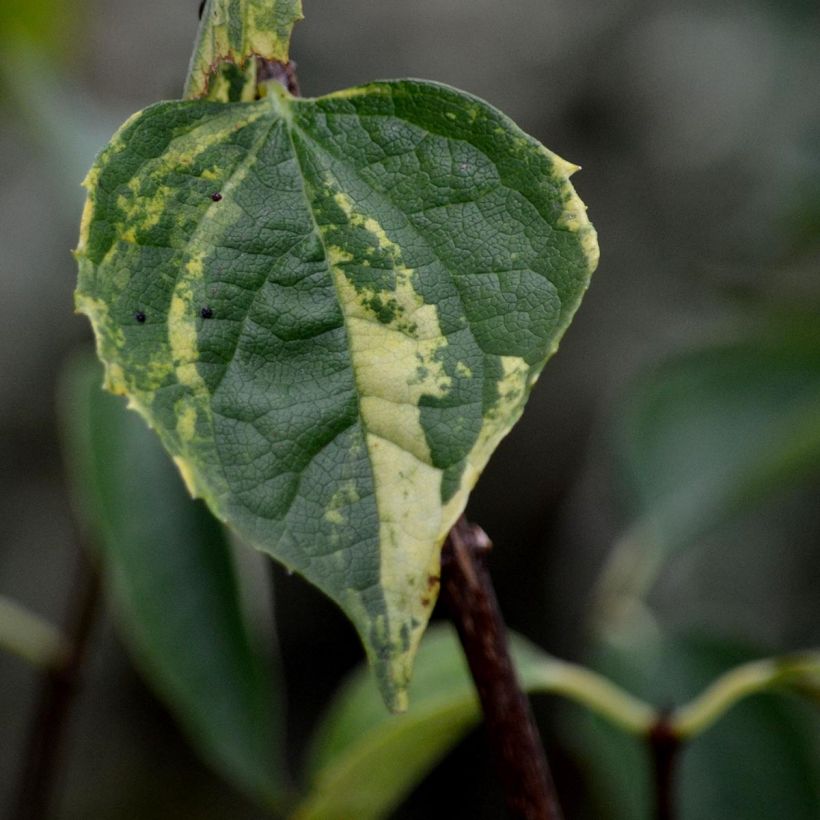

Plant habit
Flowering
Foliage
Botanical data
Philadelphus
x lemoinei
Innocence
Hydrangeaceae (Philadephaceae)
Mock Orange
Cultivar or hybrid
Other Philadelphus - Mock Orange
Planting and care
Planting is best done from October to February. This bush takes a little while to establish itself and deserves some care during the first few years. Afterwards, it can manage on its own and only requires a few generous but spaced waterings during periods of high drought or heatwaves. Its variegated foliage is sensitive to the sun: choose a partially shaded or even shaded location in hot and dry climates during the summer. The type of soil doesn't matter much; the mock orange tolerates limestone and clay perfectly. If your soil is too poor or heavy, improve it by incorporating a portion of topsoil and/or coarse sand into the planting hole, which should be wide and deep (50cm x 50cm (1.6ft)). Pruning should be done after flowering, cutting back the branches that have bloomed and leaving only the young shoots, which will bear next year's flowers. Due to its slow growth and compact habit, this Philadelphus doesn't require annual pruning; trim it if necessary, by shortening the oldest stems every 2-3 years. Philadelphus Innocence is not susceptible to pests, only aphids need to be monitored.
Planting period
Intended location
Care
-
, onOrder confirmed
Reply from on Promesse de fleurs
Hedge shrubs
Haven't found what you were looking for?
Hardiness is the lowest winter temperature a plant can endure without suffering serious damage or even dying. However, hardiness is affected by location (a sheltered area, such as a patio), protection (winter cover) and soil type (hardiness is improved by well-drained soil).

Photo Sharing Terms & Conditions
In order to encourage gardeners to interact and share their experiences, Promesse de fleurs offers various media enabling content to be uploaded onto its Site - in particular via the ‘Photo sharing’ module.
The User agrees to refrain from:
- Posting any content that is illegal, prejudicial, insulting, racist, inciteful to hatred, revisionist, contrary to public decency, that infringes on privacy or on the privacy rights of third parties, in particular the publicity rights of persons and goods, intellectual property rights, or the right to privacy.
- Submitting content on behalf of a third party;
- Impersonate the identity of a third party and/or publish any personal information about a third party;
In general, the User undertakes to refrain from any unethical behaviour.
All Content (in particular text, comments, files, images, photos, videos, creative works, etc.), which may be subject to property or intellectual property rights, image or other private rights, shall remain the property of the User, subject to the limited rights granted by the terms of the licence granted by Promesse de fleurs as stated below. Users are at liberty to publish or not to publish such Content on the Site, notably via the ‘Photo Sharing’ facility, and accept that this Content shall be made public and freely accessible, notably on the Internet.
Users further acknowledge, undertake to have ,and guarantee that they hold all necessary rights and permissions to publish such material on the Site, in particular with regard to the legislation in force pertaining to any privacy, property, intellectual property, image, or contractual rights, or rights of any other nature. By publishing such Content on the Site, Users acknowledge accepting full liability as publishers of the Content within the meaning of the law, and grant Promesse de fleurs, free of charge, an inclusive, worldwide licence for the said Content for the entire duration of its publication, including all reproduction, representation, up/downloading, displaying, performing, transmission, and storage rights.
Users also grant permission for their name to be linked to the Content and accept that this link may not always be made available.
By engaging in posting material, Users consent to their Content becoming automatically accessible on the Internet, in particular on other sites and/or blogs and/or web pages of the Promesse de fleurs site, including in particular social pages and the Promesse de fleurs catalogue.
Users may secure the removal of entrusted content free of charge by issuing a simple request via our contact form.
The flowering period indicated on our website applies to countries and regions located in USDA zone 8 (France, the United Kingdom, Ireland, the Netherlands, etc.)
It will vary according to where you live:
- In zones 9 to 10 (Italy, Spain, Greece, etc.), flowering will occur about 2 to 4 weeks earlier.
- In zones 6 to 7 (Germany, Poland, Slovenia, and lower mountainous regions), flowering will be delayed by 2 to 3 weeks.
- In zone 5 (Central Europe, Scandinavia), blooming will be delayed by 3 to 5 weeks.
In temperate climates, pruning of spring-flowering shrubs (forsythia, spireas, etc.) should be done just after flowering.
Pruning of summer-flowering shrubs (Indian Lilac, Perovskia, etc.) can be done in winter or spring.
In cold regions as well as with frost-sensitive plants, avoid pruning too early when severe frosts may still occur.
The planting period indicated on our website applies to countries and regions located in USDA zone 8 (France, United Kingdom, Ireland, Netherlands).
It will vary according to where you live:
- In Mediterranean zones (Marseille, Madrid, Milan, etc.), autumn and winter are the best planting periods.
- In continental zones (Strasbourg, Munich, Vienna, etc.), delay planting by 2 to 3 weeks in spring and bring it forward by 2 to 4 weeks in autumn.
- In mountainous regions (the Alps, Pyrenees, Carpathians, etc.), it is best to plant in late spring (May-June) or late summer (August-September).
The harvesting period indicated on our website applies to countries and regions in USDA zone 8 (France, England, Ireland, the Netherlands).
In colder areas (Scandinavia, Poland, Austria...) fruit and vegetable harvests are likely to be delayed by 3-4 weeks.
In warmer areas (Italy, Spain, Greece, etc.), harvesting will probably take place earlier, depending on weather conditions.
The sowing periods indicated on our website apply to countries and regions within USDA Zone 8 (France, UK, Ireland, Netherlands).
In colder areas (Scandinavia, Poland, Austria...), delay any outdoor sowing by 3-4 weeks, or sow under glass.
In warmer climes (Italy, Spain, Greece, etc.), bring outdoor sowing forward by a few weeks.

































